The most prominent crises in the world are still at large
WANA (FEB 19)- Every winter in Munich, Germany, the highest-ranking officials of the world gather to discuss the most critical global issues and conflicts. This year, the unprecedented security crises in the world have brought officials from 180 countries to the Munich Security Conference.
The war in Ukraine and Israel’s onslaught on Gaza is bloodier, costlier, and complicated beyond imagination and expectation. Many people are suffering from these wars. The heads of state and top political and security authorities of the world do not have a practical solution to exit these crises. Other parties do not necessarily accept the solutions presented by each. The Russians do not consider any participants worthy enough to be advised, cajoled, or deceived to back out by them. Not even Tel Aviv officials are willing to accept this elite society’s proposals, opinions, or orders.
On the one hand, the West is worried about losing to Russia on the issue of Ukraine. On the other hand, it is concerned about Tel Aviv’s attempts to create a humanitarian disaster in the Gaza Strip. The European Union and the United States are determined to pay more to defeat Russia in the Ukraine war, but they also do not want to face the consequences for backing Israel due to its actions opposing international law and human rights. Many countries believe that Israel’s behavior being contradictory to international standards in the war on Gaza and the silence of self-proclaimed democratic countries in the face of such crimes have exposed the rift between the nations and their governments, and this can be troublesome for the rulers of the green continent in the long run.
On the sidelines of the Munich Security Conference, the ministers of the Group of 7 countries announced that they intend to push for a “longer and more stable” ceasefire. Should these efforts be interpreted as a political gesture, or have the loud anti-Zionist protests of the citizens of the G7 countries and the rest of the world against Israel’s crimes in Gaza brought these authorities together to curb Israel’s violent crimes to rescue their “human rights “stance before it is too late?
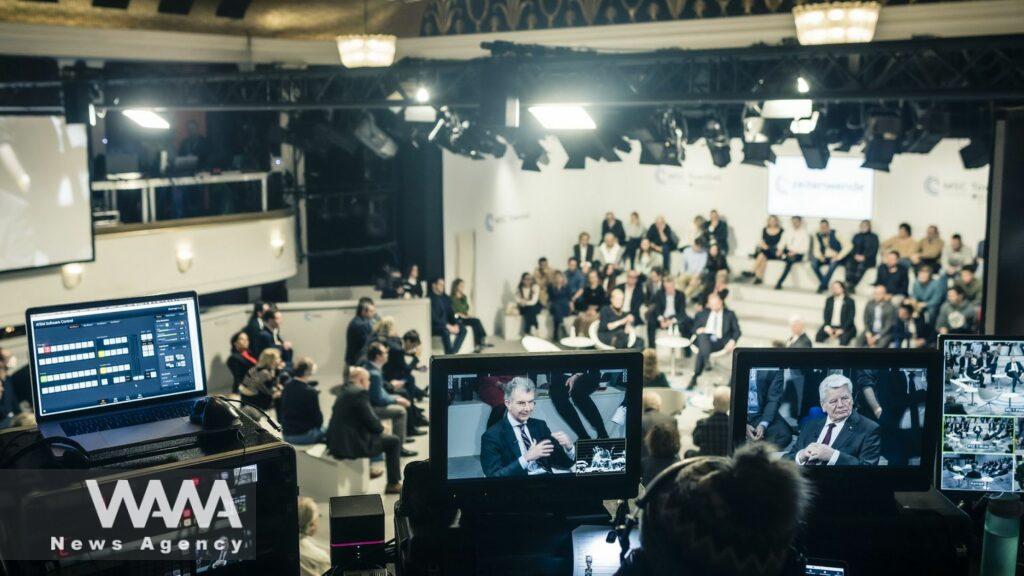
It should not be forgotten that while the leaders and foreign ministers of the major global powers were searching for a solution in Munich to end the “vicious circle” in the Middle East, Israeli Prime Minister Netanyahu, regardless of the wishes of the Group of 7 and other officials, declared that “Israel will continue the war on Gaza until it achieves all its goals.” It seems like global political pressure and the U.S. not supporting an attack on Rafah in Gaza are not going to change Tel Aviv’s policies.
In Munich, German Chancellor Olaf Schulz explicitly called Israel to adhere to “human rights and international regulations.” UN Secretary-General Antonio Guterres said, “Israel’s military response does not justify the collective punishment of Palestinians.” The prime minister and foreign minister of Qatar, who is an active mediator, while optimistic, stated that he is not very hopeful of an agreement between Israel and Hamas. U.S. Secretary of State Antony Blinken called the security of Israel to be one of Washington’s obligations and said the creation of a Palestinian state is necessary. Blinken proposed the idea of creating an independent Palestinian state to increase Israel’s security. Chinese Foreign Minister Wang Yi called for an immediate end to the war in the Gaza Strip and the establishment of an independent Palestinian state. “The suffering of Palestinians must end,” he said. EU foreign policy Chief Joseph Borrell talked about supporting the “Arab peace initiative” and…
But the loudest voice heard from the halls and panels of the conference is the voice of a world tired and discouraged by wars. Israel’s presence is strong at this conference, bringing along several families who have captives in the hands of Hamas; it seeks to create an emotional setting and save itself from any criticism.
No party of any dispute or war worldwide seems to care about the outcome of these meetings and conferences. When the elites of the world are sitting together to end the crime against humanity, warplanes are dropping bombs on people at the same time. Missiles tear people to pieces, and military drones continue to end people’s lives more ruthlessly than before.
In the last few decades, these emotional, passionate, and heated talks in Munich have not yet been able to extinguish the fires of war in the world. Children and women are still killed. Children are still hungry and displaced. The number of displaced people and immigrants continues to rise. Those concerned about the environment have not yet received appropriate answers or help. Underdeveloped countries are still waiting for real help from developed countries and…
In our notebooks, let’s put it down that the 60th Munich Security Conference this year, attended by the leaders of 50 countries, did not solve these crises. Now, these officials will put on the coats they hung in the entrance of the hall and leave the city of Munich to their offices and wait until their masters order what figure each of them should put aside for weapons to be sent to battlefields, to kill more people.
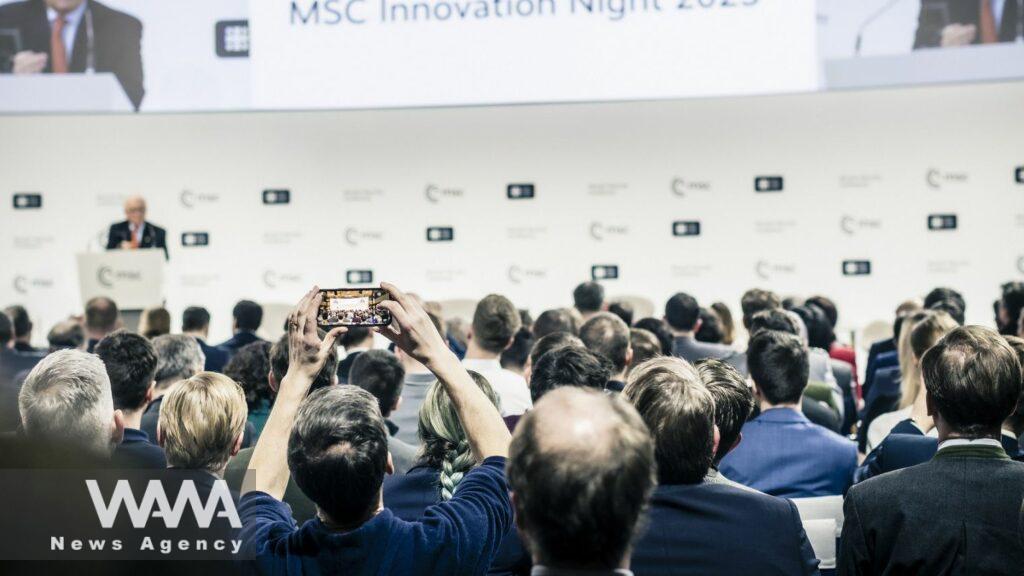
Being open to dialogue with the opposition is a beautiful slogan. Iran’s voice should not have been heard.
Despite the presence of a large number of Persian-language media opposing the Islamic Republic of Iran in Munich, who went to Germany to magnify the reason for Iran’s absence and in line with the Iranophobia project with the help of their new employer, Israel, people inside Iran were not concerned about their country not being on the list of guests of the Munich conference.
Iran does not consider the West’s hostility and Tehran’s non-participation in global decisions beneficial to the other party. Iranian experts believe that not hearing or ignoring Iran’s point of view has often caused the outcome of most of these meetings, primarily when related to the conflicts in West Asia, to be useless or full of holes.
Accusing Iran of being behind every conflict can be defined as a piece in the puzzle of Iranophobia, and Iranian authorities consider these claims to be far from logic and fairness. They believe that if Iran has turned into a prominent regional actor today, it is due to the wrongful actions and decisions of the West in the Middle East. That part of Iran’s influence and power today is a product of the strategic mistakes of the Western parties. Let’s look at some of the big mistakes of the West that Iranians were able to create golden opportunities.
The West’s support towards one of the most dictatorial rulers of the region, the Pahlavi government, resulted in the biggest and most original revolution of the century. America’s mismanagement during the Pahlavi era gave the revolutionaries an excellent opportunity to establish their independent government by ousting the autocratic and domestically established ruler, Mohammad Reza Pahlavi, and expelling foreign colonialism, namely the Americans and the British.
Iran’s defense and military had no specific structure in the first few months after the revolution. The West, inciting Saddam, made Iraq enter a long-term war with the Persians. Iran, a country that once needed the most basic military equipment to defend itself, is now on the list of countries selling modern military equipment.
The establishment of numerous military bases around Iran’s borders and in Iran’s neighboring countries forced Tehran to contemplate its national security with more concern and also to turn its attention to anti-security movements outside its borders.
The formation of Al-Qaeda and Taliban and their establishments in Iran’s neighboring countries was a serious alarm for the Islamic Republic. Afghanistan and Iraq, with dictator rulers at that time, were a potential danger for Iran. The Iranian military and politicians had no choice but to expand their security umbrella to contain possible crises.
Israel’s continuous threats and attacks against the Shiite groups in Lebanon had previously brought Iranians to Lebanese soil, but the birth of ISIS changed the game to a great extent. Since then, Iran entered the phase of military cooperation with these countries at the official request of the governments of Syria and Iraq. Iran’s domain of influence once limited within its borders, expanded further with the creation of “resistance groups” in other countries. Of course, this amount of influence has not been pleasant for some countries in the region, nor for Tel Aviv and the West.
Plans to create chaos inside Iran for the past 45 years and try to topple the government in various forms raised the alertness level of the political and military authorities in Iran, making them strengthen their security plans for possible dangers.
In the most recent case, we are witnessing the Israeli onslaught on Gaza, which has resulted in an unprecedented killing of women, children, and men and the displacement of Palestinian people. The U.S. and the West are seeking to give artificial respiration to the Zionists with financial, military, and political aid to Tel Aviv, while Tehran is trying to find a way to end the war and establish a Palestinian state for the people in their land, along with military support to the resistance groups. Iran’s supreme leader has clearly stated that the Islamic Republic supports any group or entity that attacks the interests of Israel in any part of the world. Tehran has nothing to hide in declaring this position.
And…
Analysts believe that Iran’s power today in various fields is due to the Western, Hebrew and Arab actions, instigations and incorrect decisions. If those wrong decisions and approaches were not followed through, Iran may not have found a justification for direct intervention and presence in Lebanon, Syria, Iraq, Yemen, etc.
Whether the regional and extra-regional powers accept this fact, Iran has become influential in the West Asian region. Not inviting Iran to meetings of this importance will result in big holes in the findings of other leaders from crises. Holes that will make the critical situation in the West Asian region even more crucial.
The presence of fake Iranians at the Munich Security Conference
It is not surprising that no officials were invited to Munich for the reasons put forward by the organizers of the conference. What is surprising is the presence of people who claim to represent the Iranian society and be the voice of the voiceless people, with the least acceptance among the Iranian people.
The West must realize that if its leading figures opposing the Iranian government are these people, with this level of political, cultural, and social understanding of Iran, they are implicitly confirming that they have nothing to topple the Islamic Republic with. Therefore, they have become obliged to use the most deprived people in terms of knowledge and the most notorious in reality and virtually. It should be understood that Tehran is not unhappy about not attending the Munich conference as much as it is happy about the presence of these people. This happiness is because Iran knows that if the analysis of these people is heard and implemented by the audience of this conference, the results will never hurt Tehran, and their study will not help the West in any way.
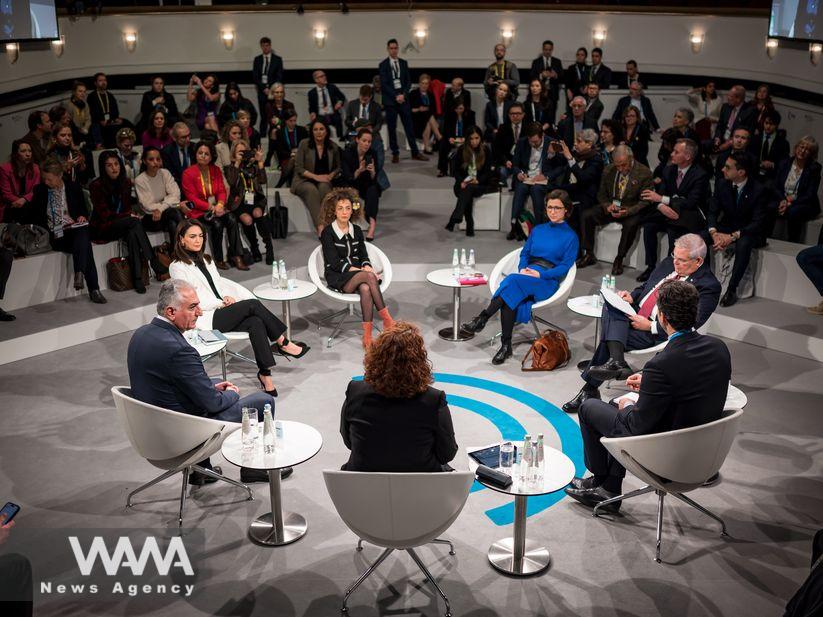
The West’s anger and hatred of the government in Iran should not cease their rationality. People like Reza Pahlavi, the runaway Shah’s son, Masih Alinejad, and Nazanin Boniadi only know how to speak Persian. These people have delivered the most superficial and wrong analysis to Western governments and services in the past few decades to receive more financial aid and comfortably live in the West. Iranian experts inside and even the opposition outside the country interpret this decision of the conference organizers as a big mistake and believe that the voice of these opponents is always louder than their popularity and reputation.
Maybe one day, Iran can be imagined without the Islamic Republic, but it does not seem that Iranians will ever transfer the next government to this pilfering community. They may be good stand-up comedians on the stage, but they are considered an awkward patch and a bitter joke for an important gathering like the Munich Security Conference, where big decisions are to be made.
Reza Ganji – Political Analyst

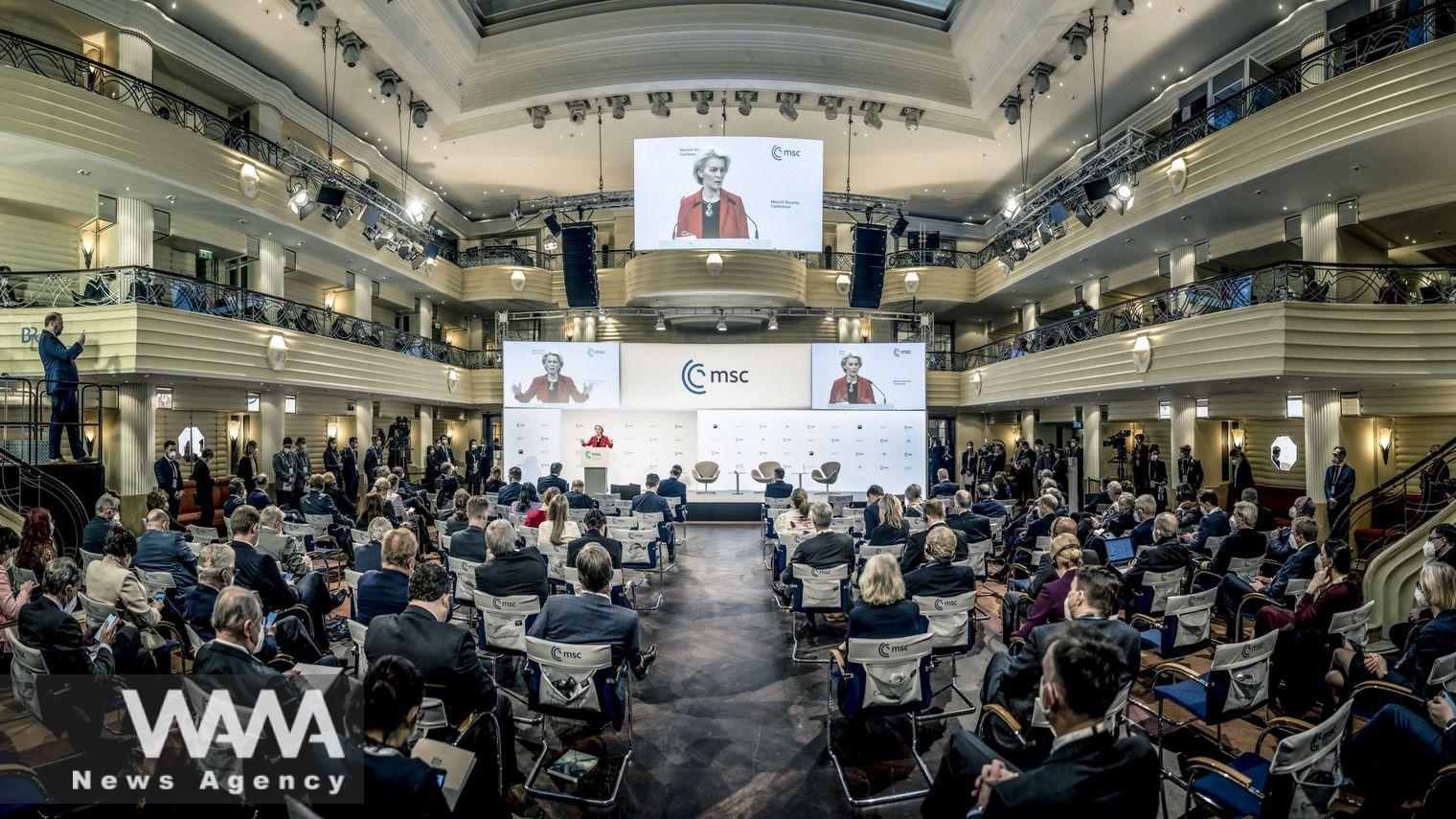
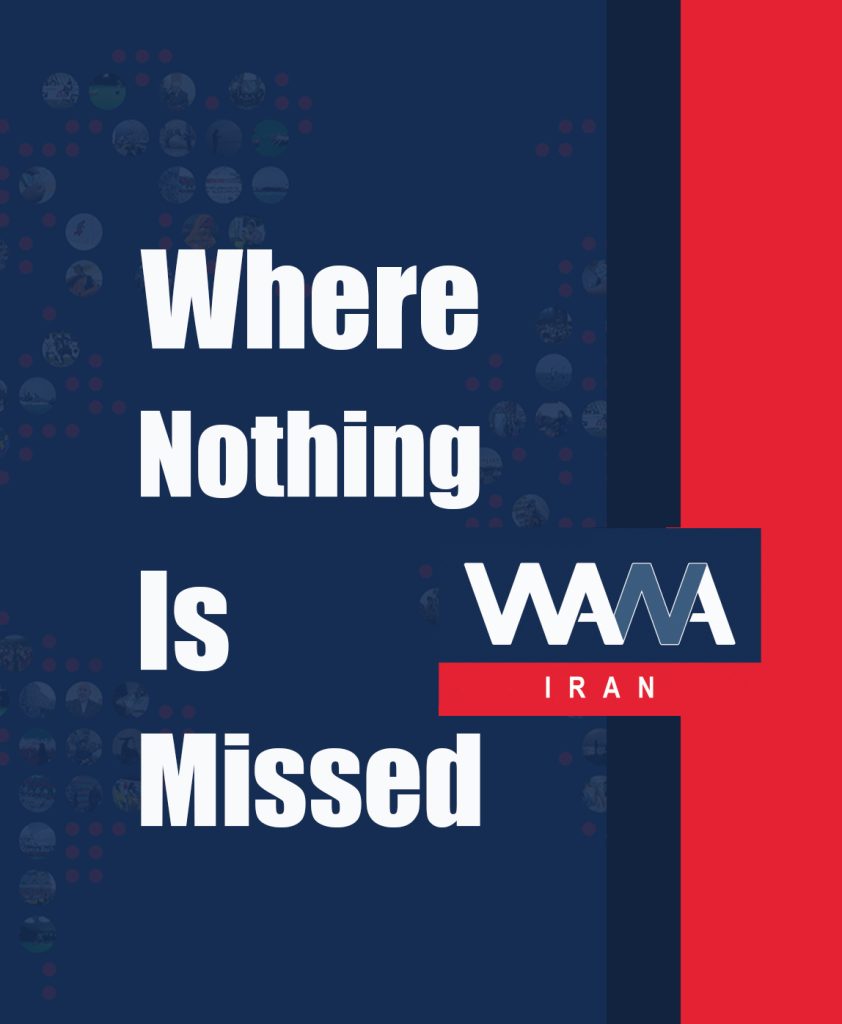











User comments